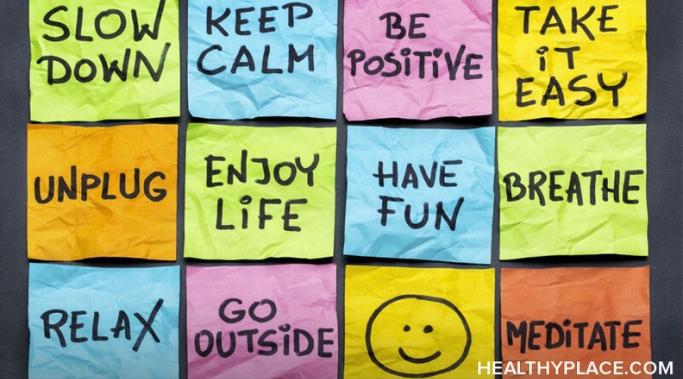I've been working through ways to build better self-esteem. I've laid out how long of a journey it can be. Like any long journey, the feeling of being stuck will pop up now and then. I've started to feel stuck over the last couple of weeks. Today, I'll talk about managing that feeling and getting back on track by resetting your perspective.
Positive Thinking
The journey to better self-esteem is a lengthy but empowering process. In my experience, understanding my own identity was a great kick-starter for that process. I will continue to work through how that helped me. Today, I'll cover the second step: sharing your identity with others.
So, we're on a journey to build better self-esteem, and you want to know where to begin. Starting out may seem like a daunting task. The best way to tackle it is by breaking it down into smaller steps. Today, we'll cover step one: identifying what makes you, you.
In my last blog post, I spoke about how changing the viewpoint I took on my life, and my accomplishments helped to build my self-esteem. Taking a long-term view of my progress over a 10-year period showed that my trend, like that of the stock market, was upwards and to be celebrated. There's another example of changing my viewpoint that helped my self-esteem get stronger that I will share today.
Life eventually taught me that changing my view could help my self-esteem and let me feel better about myself. My self-esteem suffered for many years because my view was focused firmly on the things I didn't accomplish. There was no way to deny that I didn't finish this thing, and never started that thing, and failed to reach my goal at the other. With my mind's telescope pointed only at my disappointments, I could come to no other conclusion than I was not worthy of respect from myself or others.
I have a talisman that I carry with me everywhere I go, and it helps keep my self-esteem strong. A talisman is a good-luck piece, but it can also act as a trigger to evoke a memory or an emotional response. Here's the story of my talisman for my self-esteem and how you can use one of your own.
One effective method of building self-esteem that worked well for me was to build self-esteem through skills. “I can’t do anything right.” It’s a popular refrain of depressive self-talk. I should know. I used to do it all the time. Today, while I’m still not immune to such thoughts, I don’t have them nearly as often as I used to. When they do pop up, I’m much better at telling them to shut up and go away. It all started with just one thing.
It's important to learn to move on after failure because we aren't going to succeed at everything, and failure can damage our self-esteem. Yet building self-esteem can require us to stretch beyond our limits, even though, sometimes, our efforts may not bring us the results we hope for. When our self-esteem is poor, it's hard to keep ourselves motivated and positive. How do we continue to move forward after failing?
Having a well-crafted set of life goals helps me on my journey to build self-esteem, but it's the baby steps that lead to those goals that make me feel successful. Completing a life goal's final steps may be years away, and focusing on that can be detrimental to healthy self-esteem. Changing my focus to the baby steps I take improved my self-esteem.
Your journey to stronger self-esteem can take as little as 10 minutes each day. If you feel you have poor self-esteem but don't know what to do about it, try this simple exercise that takes five minutes in the morning and five before bed. Simply by committing to this small amount of time on yourself, you are building healthier self-esteem.









